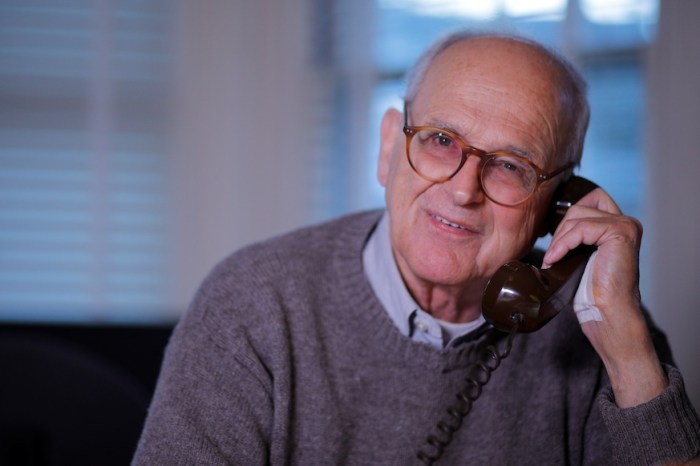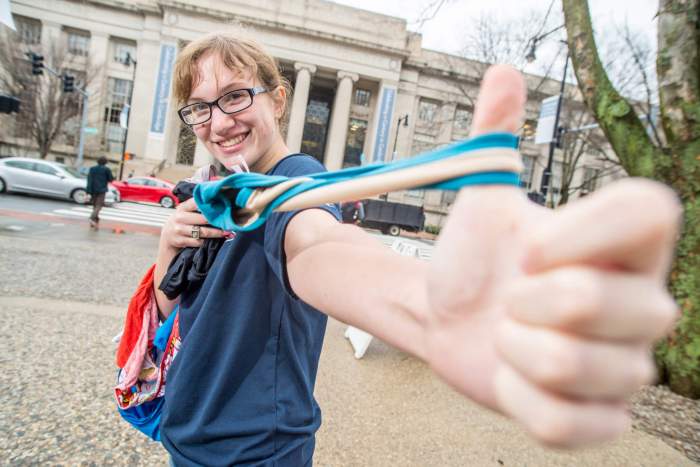Lilly is an energetic 9-year-old, but she can’t run around with her friends the way she wants to.
She has to use a walker because of her cerebral palsy, and it doesn’t move well over cracks in the sidewalk or different terrains like playground mulch, sand and gravel, said her mother, Alison Premo.
To help Lilly, a group of Massachusetts Institute of Technology students is “hacking” her walker and, in the process, learning about the importance of inclusion when it comes to mechanical engineering and design.
The collaboration started when Premo learned about an event at MIT called ATHack (Assistive Technology Hack) through an email newsletter that was a resource for those with disabilities.
“ATHack caught my eye,” she said. “For Lilly, her primary challenge is physical access. She has cerebral palsy, and it affects all the muscles in her body. … I thought, ‘If anybody can solve some of these problems, it’s the kids at MIT.’”
ATHack is an annual event that pairs MIT students with a person in the community who has a disability and needs some sort of assistive technology, explained Jaya Narain, a master’s student at MIT and co-founder of ATHack. The “hackathon” is one day in which students work in teams to brainstorm, design and build a prototype exactly to the person’s needs.
“The real goal of the hackathon is to promote innovation and interest in assistive technology,” Narain said. “One of the things we’re always interested in is how to apply what we’re learning as engineers to projects that have a real impact on the quality of people’s lives.”
For Lilly, that meant equipping her walker with different wheels in order to go over different terrain. Though the hackathon is over (it occurred in February), the students are still working on Lilly’s modified walker because they wanted to give her more than the prototype they created in the event’s limited time.
“We saw the need that Lilly had, and she was really fun and lively, and the walker she has just wasn’t good enough,” said Stephanie Proule, a first-year graduate student studying mechanical engineering, and one of the MIT students on “Team Lilly.”
“We really wanted to give her a walker she could use in real life, not just a prototype that she might use in the future,” she said.
So even though they’ve had other classes and finals to finish, the students are still working on a walker for Lilly, an act that Premo said was touching.
“It’s the idea that … no matter how small the act feels — and it really can sound cheesy — but people can make a difference,” Premo said.
The fact that these students even wanted to be involved in creating assistive technology was important to Premo. “No matter the career path these students take, whether it’s in product design or not, they now have more awareness about how to accommodate those with disabilities,” she said.
“[There are] mass-produced solutions, but every disability is so unique, they don’t fit into those kind of boxes,” she said. “Something like this — you get to specify exact requirements, get to meet in person, get something that’s really tailored — that is very special.”






















